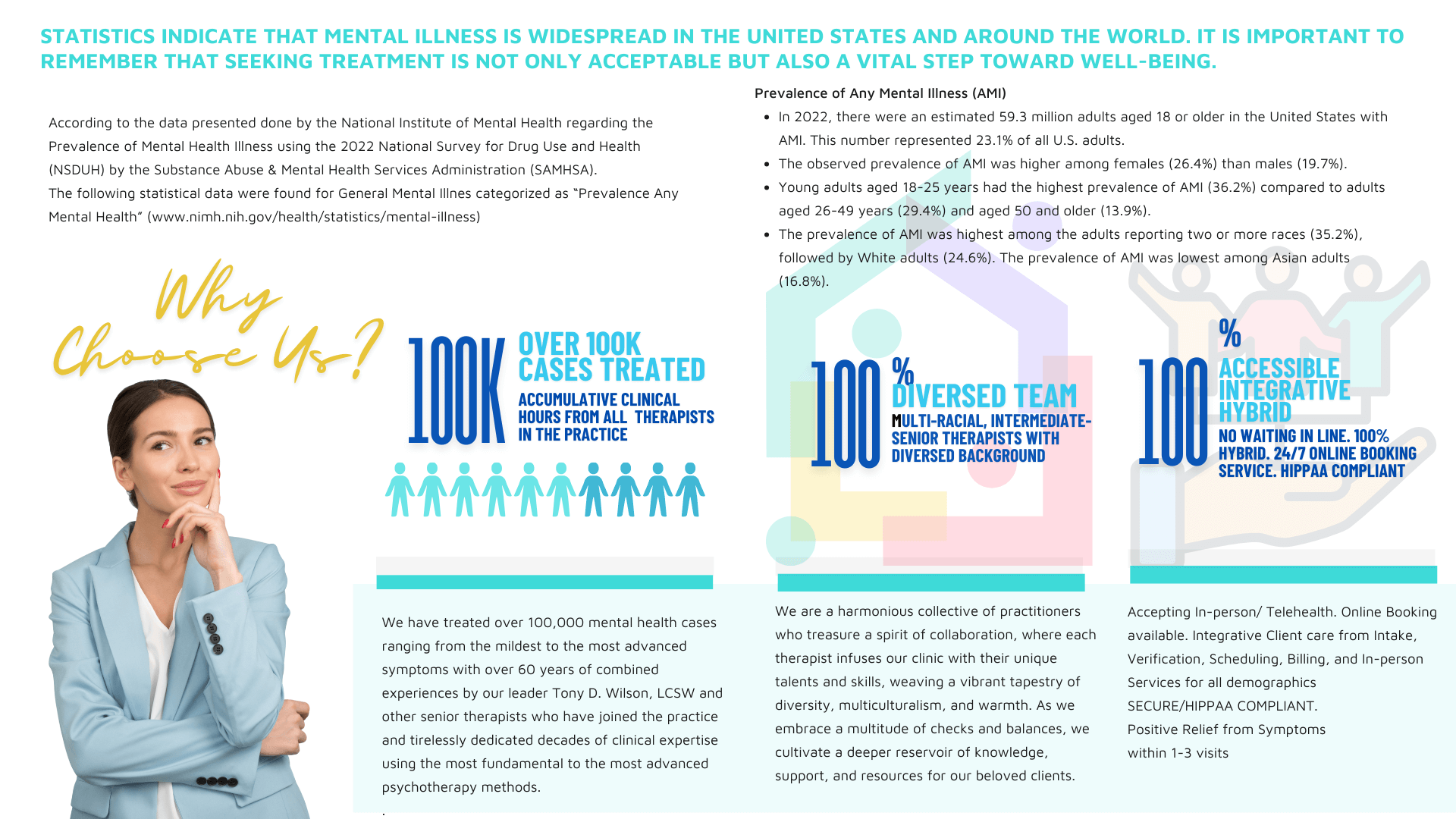







INITIAL SESSION
Your first therpay session
You’ll likely meet in your therapist’s office or a clinic once a week or every other week for a session that lasts about 45 to 60 minutes. Nowadays it is also common to do Phone or Virtual Sessions (Telehealth).
Psychotherapy, usually in a group session with a focus on safety and stabilization, can also take place in a hospital if you’ve been admitted for treatment.
At the first psychotherapy session, the therapist typiclly gathers information about you and your needs. You may be asked to fill out forms about your current and past physical and emotional health. It might take a few sessions for your therapist to fully understand your situation and concerns and to determine the best approach or course of action.
The first session is also an opportunity for you to interview your therapist to see if his or her approach and personality are going to work for you.
- Make sure you understand and can get along
- What type of therapy will be used
- The goals of your treatment
- The length of each session
- How many therapy sessions you may need
- Frequency of Visit
Don’t hesitate to ask questions anytime during your appointment. Having a good fit with your therapist is critical for psychotherapy to be effective.
DURING THERAPY
For most types of psychotherapy, your therapist encourages you to talk about your thoughts and feelings and what’s troubling you. Don’t worry if you find it hard to open up about your feelings. Your therapist can help you gain more confidence and comfort as time goes on.
Because psychotherapy sometimes involves intense emotional discussions, you may find yourself crying, upset or even having an angry outburst during a session. Some people may feel physically exhausted after a session. Your therapist is there to help you cope with such feelings and emotions.
Your therapist may ask you to do “homework” — activities or practices that build on what you learn during your regular therapy sessions. Over time, discussing your concerns can help improve your mood, change the way you think and feel about yourself, and improve your ability to cope with problems. The number of therapy sessions you need — as well as how frequently you need to see your therapist — depends on such factors as:
- Your particular mental illness or situation
- Severity of your symptoms
- How long you’ve had symptoms or have been dealing with your situation
- How quickly you make progress
- How much stress you’re experiencing?
- How much your mental health concerns interfere with day-to-day life
- How much support you receive from family members and others?
- Cost and insurance limitation
It may take only weeks to help you cope with a short-term situation or may last a year or longer if you have a long-term mental illness or other long-term concerns.
Psychotherapy may not cure your condition or make an unpleasant situation go away. But it can give you the power to cope in a healthy way and to feel better about yourself and your life.
WHAT TO EXPECT




Take steps to get the most out of your therapy and help make it a success.
- Make sure you feel comfortable with your therapist. If you don’t, look for another therapist with whom you feel more at ease.
- Approach therapy as a partnership. Therapy is most effective when you’re an active participant and share in decision-making. Make sure you and your therapist agree about the major issues and how to tackle them. Together, you can set goals and measure progress over time.
- Be open and honest. Success depends on willingness to share your thoughts, feelings and experiences, and to consider new insights, ideas and ways of doing things. If you’re reluctant to talk about certain issues because of painful emotions, embarrassment or fears about your therapist’s reaction, let your therapist know.
- Stick to your treatment plan. If you feel down or lack motivation, it may be tempting to skip psychotherapy sessions. Doing so can disrupt your progress. Try to attend all sessions and to give some thought to what you want to discuss.
- Don’t expect instant results. Working on emotional issues can be painful and may require hard work. You may need several sessions before you begin to see improvement.
- Do your homework between sessions. If your therapist asks you to document your thoughts in a journal or do other activities outside of your therapy sessions, follow through. These homework assignments can help you apply what you’ve learned in the therapy sessions to your life.
- If psychotherapy isn’t helping, talk to your therapist. If you don’t feel that you’re benefiting from therapy after several sessions, talk to your therapist about it. You and your therapist may decide to make some changes or try a different approach that may be more effective.
GETTING THE MOST OUT OF THERAPY






From the moment you arrive
our number one Proirity is you
Office Tour










Statistics reveal that mental illness pervades the landscape of the United States and beyond. It is imperative to acknowledge that pursuing treatment is not merely acceptable; it is a crucial stride toward achieving wellness.

Our Promise
To raise the standard of how we do business as a private mental health practice, constantly adapting and innovating systems of success that are hyper-focused on effective evidence-based treatment methods, intelligent technology, sound business decisions, and solid ethical principles.



CASE STATISTICS
Most common Mental Health Illness we Treat: 1. Anxiety, 2. Stress, 3. Depression, 4.Trauma, 5. Interpersonal Relationships

EVIDENCE BASED TREATMENT METHODS
Use visual charts to communicate info more effectively.

CREDIBILITY
Use visual charts to communicate info more effectively.

DEMOGRAPHICS
Use visual charts to communicate info more effectively.






